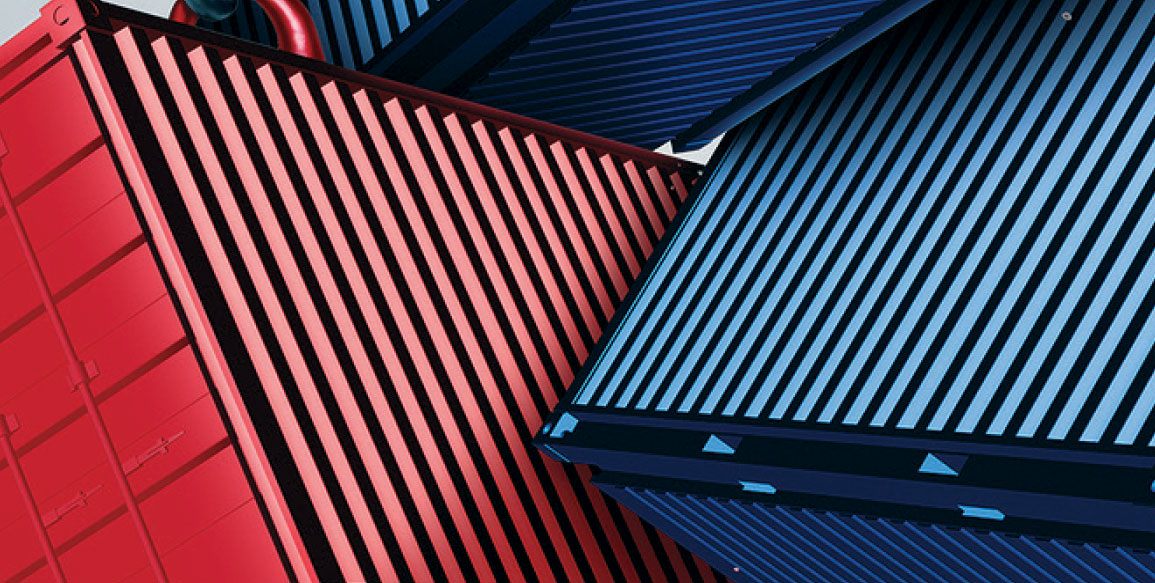ECONOMIC POLICY
feature
But rather than complaining and threatening its international trading partners—the EU is Beijing’s biggest—Chinese policy-makers may want to take a step back and try to understand why it is met with increasing dissatisfaction.
Europe’s pullback follows hot on the heels of Washington’s own moves to curb the influence of the Middle Kingdom and its firms, even urging Europeans to “link arms” against the far eastern threat. But tech is not the only sector where skepticism on both sides of the Atlantic about China has been growing. The country’s heavy industries and its overcapacities in steel and aluminum have been criticized by both Washington and Brussels for years, leading the U.S. to impose sanctions on Chinese steel and aluminum imports in March last year.
For the U.S. and the EU, Beijing’s use of market distorting policies to prop up its domestic industries has been a painful thorn on the side, as has been the lip service of Chinese officials to ending the resultant excessive capacities. For steel, organizations like Greenpeace criticized in 2017 that China’s capacity cuts look impressive on paper, but belie the fact that 36.5 million ton s were added in 2016 alone. Beijing stepped up its efforts in late 2017, which resulted in a mild reduction in steel production. However, the same cannot be said for aluminum.
But rather than complaining and threatening its international trading partners—the EU is Beijing’s biggest—Chinese policy-makers may want to take a step back and try to understand why it is met with increasing dissatisfaction.
Europe’s pullback follows hot on the heels of Washington’s own moves to curb the influence of the Middle Kingdom and its firms, even urging Europeans to “link arms” against the far eastern threat. But tech is not the only sector where skepticism on both sides of the Atlantic about China has been growing. The country’s heavy industries and its overcapacities in steel and aluminum have been criticized by both Washington and Brussels for years, leading the U.S. to impose sanctions on Chinese steel and aluminum imports in March last year.
For the U.S. and the EU, Beijing’s use of market distorting policies to prop up its domestic industries has been a painful thorn on the side, as has been the lip service of Chinese officials to ending the resultant excessive capacities. For steel, organizations like Greenpeace criticized in 2017 that China’s capacity cuts look impressive on paper, but belie the fact that 36.5 million tons were added in 2016 alone. Beijing stepped up its efforts in late 2017, which resulted in a mild reduction in steel production. However, the same cannot be said for aluminum.
Two years later, not much has been done on Beijing’s part. Instead, Chinese exports of value added aluminum products (semi-fabricated) surged to new heights in 2018, as did total exports of primary aluminum and alloys, which jumped by 21 percent compared to 2017. The impact on the European and American aluminum industries has been severe. The rising production and exports are keeping global aluminum prices dangerously low—so low in fact, that 30 to 40 percent of smelters worldwide are booking losses. Just last year, two smelters in Spain were forced to close due to their inability to compete with cheaper Chinese products.
The reason behind the continued failure of the Chinese government to get its aluminum sector under control relates to the Communist Party’s fear of domestic instability and the need to provide for economic growth. Unfortunately, in 2018 Chinese domestic demand for the metal faced a slowdown and domestic smelters have sought to offload their excess product overseas. As it happened, the American sanctions on Russian aluminum producer Rusal presented a golden opportunity to do so at a time when European buyers shied away from the company, and Chinese producers gladly rushed in to pick up the slack.

Germany is the most notable country to rethink its approach with China. In an unprecedented move, the country’s largest industry association, the Federation of German Industries (BDI), published a policy paper in January that more explicitly than ever before singled out the Chinese state-controlled economic system as a threat to Germany’s—and Europe’s—global competitiveness. Mentioning state-subsidized overcapacity, forced technology transfers, and lack of reciprocity, the BDI demands that Brussels and Berlin set up a modern, coherent long-term industrial policy to support the continent’s indigenous industrial base, or risk critically diminished competitiveness.
Between blocking Huawei and changing political focus across the EU—reflected in German Chancellor Merkel’s highly symbolic visit to Japan—it does seem like Europe is about to end its “naivety” regarding China. Such dramatic rethinking does not bode well for Beijing, where President Xi would be well advised to carefully consider the meaning of these changing tides, learn the lessons, and adapt its industrial policies. Otherwise, though China is an undisputable global power, it risks being a highly unpopular one.

